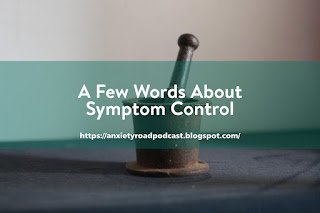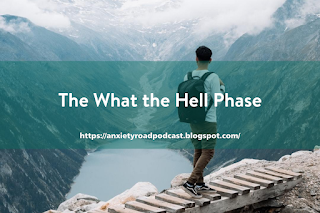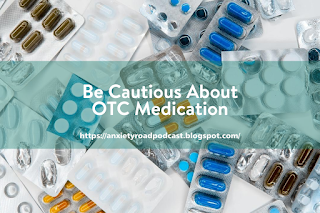The headline version for 2022 is medication, therapy, nutrition, body support and environment. Yes, I’ve changed things up just a bit.
But before we can get to that, I feel that we need to have an understanding about symptoms.
Most people tend to think of treatment as getting rid of their symptoms.
Totally valid. And understandable.
I know I felt that way, if I could just get rid of the bug-a-boos, I could get back to normal.
It reflects we have been taught about health and health care. Take the pill, apply the spray, cover it up and move along.
The dictionary meaning symptoms is defined as subjective evidence of disease or physical disturbance or something that indicates the presence of bodily disorder.
Your symptoms are indicators that there is a problem, and your mind and body are asking you to figure it out.
There is more in this week's episode.
Resources Mentioned:
From Anxiety Centre post on Can Anxiety Symptoms Change?Anxiety Network page on Physical (Somatic) Symptom Shifting
Recognizing and easing the physical symptoms of anxiety via Harvard Health
US National Institute of Mental Health page on Anxiety Disorders
ADAA.org brochure on Treating Anxiety Disorders
If you need support contact the National Suicide Prevention Lifeline at 1-800-273-8255, the Trevor Project at 1-866-488-7386 or text “START” to 741-741.
Disclaimer:
Links to other sites are provided for information purposes only and do not constitute endorsements.
Always seek the advice of a qualified health provider with questions you may have regarding a medical or mental health disorder.
This blog and podcast is intended for informational and educational purposes only. Nothing in this program is intended to be a substitute for professional psychological, psychiatric or medical advice, diagnosis, or treatment.











